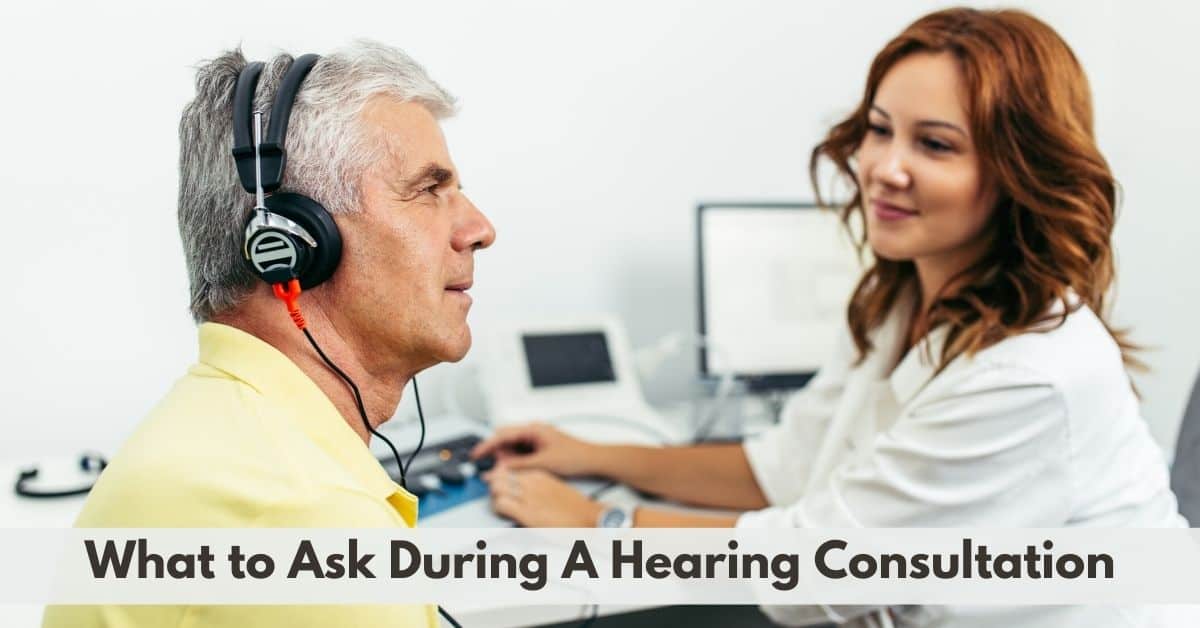- Pesticides Affect Hearing in Farmers - September 2, 2024
- Hearing Loss is #1 Disability for Veterans - August 1, 2024
- Untreated Hearing Loss linked to Dementia - July 1, 2024
Now that you have decided to take the step toward seeking hearing assistance, you will find that you have a lot to learn. Fortunately, your hearing health professional is there to guide you through the process. The first step you need to take is to schedule a hearing test. At this appointment you will not only have the examination and a delivery of the results, but you will also have an opportunity to ask and answer questions about the process of hearing assistance.
When you have this consultation, we will have a few general questions about your lifestyle and the contexts in which you find hearing to be difficult. Be sure to answer these questions as thoroughly and honestly as you can. In addition to answering these questions, you will have an opportunity to ask your own questions.
The following are a few of the important inquiries to make during your consultation. You might want to write some of them down so that you don’t forget to ask, particularly as the appointment will be full of new information for you. However, don’t fret if you forget to ask some questions. You can always call or return at a later time to ask any questions you forgot at the first meeting.
What are the details of my hearing loss?
Although your hearing health professional is the only one who needs to have all the information about your hearing condition, you will likely be curious to know more about it. You can ask how severe your hearing loss is, if it is evenly distributed between your two ears, and if it is located in the inner ear or due to a problem in the outer or middle ear.
These questions, even if you don’t understand all the results during your appointment, can be useful for further research on your own at home. For instance, the most common form of hearing loss is sensorineural hearing loss in the inner ear due to the gradual process of a lifetime of exposure to sound and noise. If you have this type of hearing loss, a certain range of treatment options will be appropriate, whereas rarer forms of hearing loss require other treatments.
What are the types of hearing aids that are suited to my individual condition?
As you may know, no two experiences of hearing loss are the same. Some people battle hearing loss particularly in social settings where they need to focus on one person’s voice at a time, while others have trouble in big public spaces with background noise.
Depending on the results of your hearing test, we can recommend a range of hearing aids. Be sure to ask about the features, benefits, and limitations of each of these recommendations, as well as the cost tradeoffs to consider. Some of the features that might be essential to one person can be unnecessary to another, and if you can limit the number of features you may also be able to bring down the cost of your aids.
What do I do to get used to wearing hearing aids?
Once you have narrowed down the right hearing aids for you, you will want to consult about the right ways to learn how to use them. Unlike eyeglasses, which make it possible to suddenly transform the world from blurriness to clarity, hearing aids tend to have an adjustment period. You will find yourself hearing things that you haven’t heard for a long time, and that awareness can be jarring at first.
Our team can advise you the right way to adjust to your aids, in what contexts to try them out, how long to wear them, and how to handle them. Other details about cleaning and maintenance can be provided, as well. If you find that your hearing aids are difficult to use for any reason, including that they might be too small to insert and remove if you have arthritis or other manual dexterity issues, then you can also ask us what can be done about an exchange or modification for another set of aids.
Be sure to ask as many questions as you can up front, knowing that you will receive ongoing support as time goes by, as well.
If you are ready to schedule a hearing test and consultation, contact us today!

